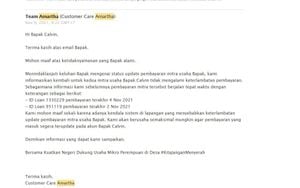Kazakhstan has officially secured permission to export honey to the European Union, marking a significant achievement for the country’s agricultural sector. The confirmation was published by the European Commission on February 21, 2025, indicating the successful culmination of years of effort by Kazakh authorities.
According to the Ministry of Agriculture of Kazakhstan, extensive work was necessary to develop and implement the National Monitoring Plan for residual substances in honey. This plan was pivotal for Kazakhstan’s inclusion on the list of countries authorized to export such products to the EU. The Ministry elaborated, stating, "This achievement is the result of many years of work. Numerous seminars, consultations, and inspections were conducted to comply with EU requirements."
The commission's resolution will take effect twenty days after its publication in the Official Journal of the European Union, providing clarity and urgency to local producers eager to tap the European market. The establishment of rigorous monitoring practices reflects Kazakhstan’s commitment to meeting international food safety standards.
To be included on the EU-approved list of businesses eligible for exporting honey, Kazakh producers must adhere to comprehensive EU regulations. Requirements include submitting various documents to the Veterinary Control and Supervision Committee. These documents include assurance letters from local inspection agencies confirming compliance with EU import norms and regulations, veterinary inspection acts, production control system documentation, and completed forms with company data presented both in English and Russian.
The ministry stated, "For us to be included on the EU's approved list, companies must meet all requirements stipulated by EU regulations. This ensures the quality and safety of the honey supplied to European consumers.”
The successful approval for honey exports aligns with Kazakhstan's broader objectives to broaden its export capabilities and diversify its agricultural exports. It serves as part of the country’s strategy to boost its economy by increasing agricultural product deliveries to Europe, spurred on by political advancements and improved international relations.
This development is particularly notable as Kazakhstan had previously announced intentions to increase exports of wheat and other agricultural products through Russian territory to reach European markets. These agricultural advancements coincide with Kazakhstan's push to strengthen economic ties and improve trade efficacy within the region.
Given these recent advancements, Kazakh honey producers are poised to enter the competitive European market, which not only symbolizes enhanced agricultural capacity but also showcases Kazakhstan's growing status as a key player on the international agricultural stage. The Ministry of Agriculture and associated agencies remain hopeful as they continue to fine-tune their processes to facilitate seamless exports.
Experts believe this move will enable Kazakhstan to gain footholds within global markets, fostering more diverse economic development pathways. Beyond honey, it sets the stage for future agricultural innovations and collaborations, with greater opportunities arising as more products of Kazakh origin may follow suit to reach broader markets.
The move to export honey is not just beneficial economically; it also highlights Kazakhstan’s agricultural potential. A nation richly endowed with natural resources, the ability to meet stringent EU quality standards can pave the way for more Kazakh products to receive similar approvals.
This initiative invites more investments and innovation within the agricultural sector, encouraging other agricultural producers to similarly seek compliance with international standards. It can result in enhanced production techniques, sustainability practices, and contribute to holistic rural community development.
Looking forward, Kazakhstan’s advances remind the world of the potential for countries rich in natural offerings to successfully integrate themselves within the global agribusiness framework, representing what can be achieved through perseverance, commitment, and adherence to quality standards.



